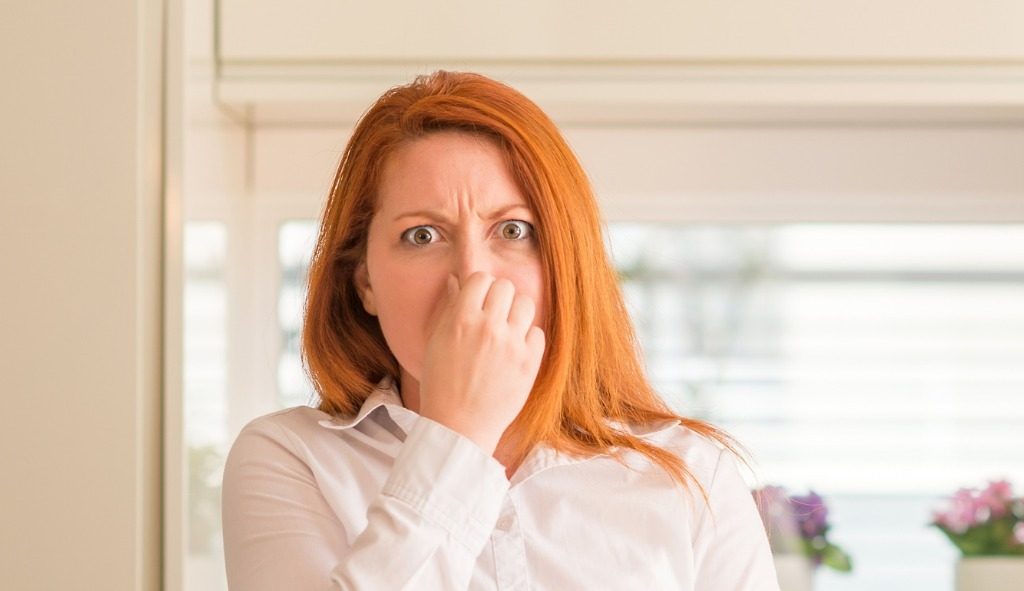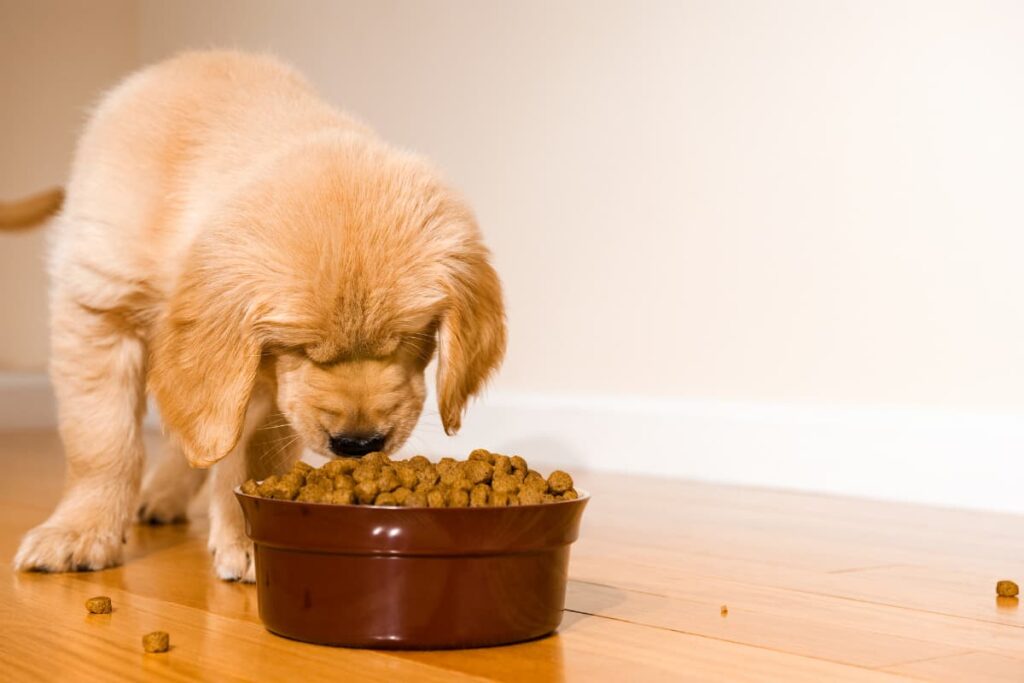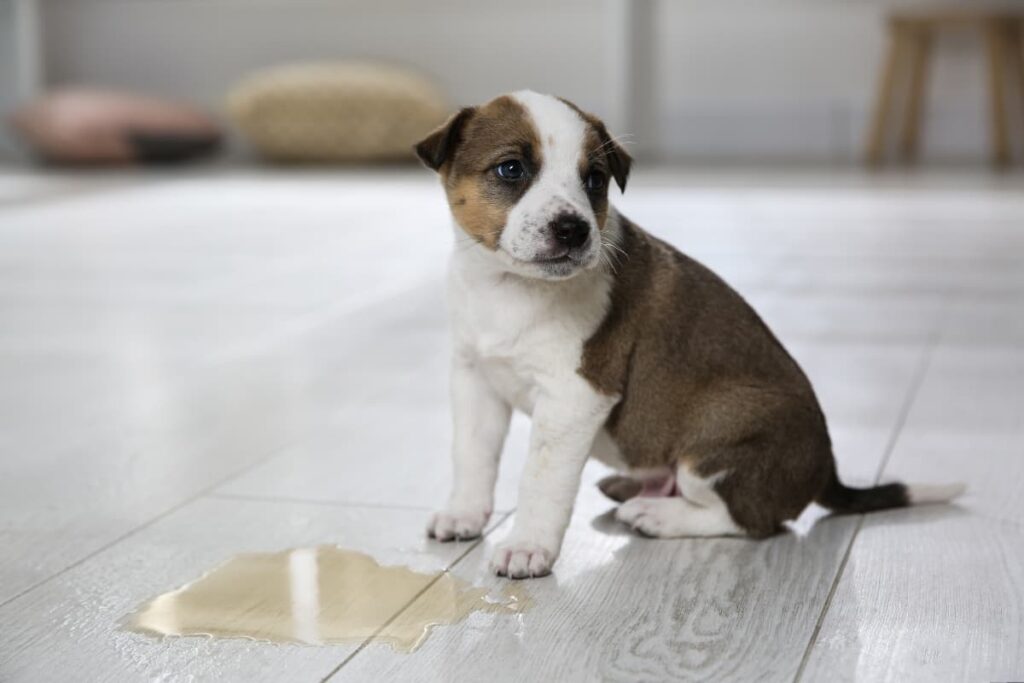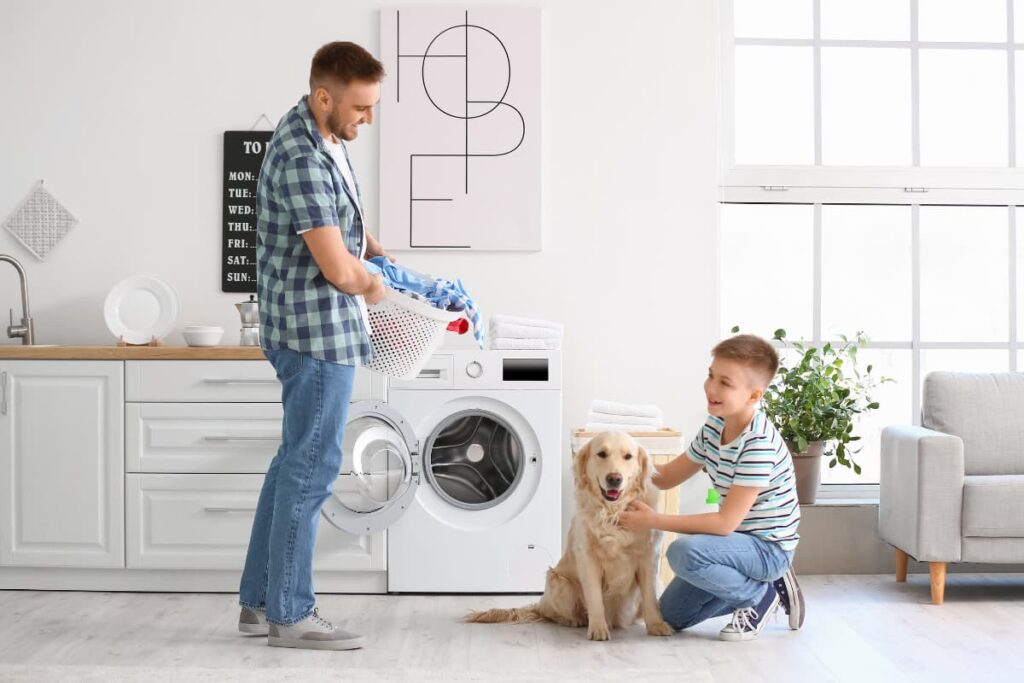Introduction
As homeowners, we take pride in maintaining a clean and comfortable living environment for ourselves and our beloved pets. However, one common issue that often arises is the unpleasant odor emanating from our furry friends’ urine. You might have noticed that your dog’s urine sometimes has a distinct ammonia-like smell, leaving you wondering, “Does dog urine smell like ammonia?”
In this comprehensive guide, we’ll delve into the science behind why dog urine can sometimes resemble ammonia, explore the factors influencing this odor, and provide practical tips on how to address and prevent this potty problem. So, let’s roll up our sleeves and get to the bottom of this stinky situation!

The Science Behind the Smell
Breaking Down the Basics
Urine odor is a natural byproduct of the body’s metabolic processes. When your dog eliminates waste through urination, various compounds are excreted, including urea, uric acid, and ammonia. It’s this combination of substances that gives urine its characteristic scent.
Chemical Composition
Ammonia, a compound composed of nitrogen and hydrogen atoms (NH₃), plays a significant role in urine odor. While fresh urine typically contains relatively low levels of ammonia, it can increase over time due to bacterial activity. As urine decomposes, urea is broken down into ammonia and carbon dioxide by the enzyme urease, contributing to the pungent odor.
Understanding the Biological Processes
When it comes to understanding why dog urine might smell like ammonia, several biological factors come into play. Dogs have unique dietary and physiological differences that can influence the composition and odor of their urine. For example, a diet high in protein can lead to higher concentrations of urea in the urine, which, when broken down, can produce more ammonia.

Factors Influencing Dog Urine Odor
Diet and Nutrition
Your dog’s diet can have a significant impact on the smell of their urine. Foods rich in protein, such as meat and certain grains, can increase the concentration of urea in the urine, potentially intensifying the ammonia-like odor. Conversely, a balanced diet with proper hydration can help dilute urine and reduce odor.
Health Conditions
Certain health conditions can also affect the odor of your dog’s urine. For example, urinary tract infections (UTIs) or kidney issues can alter the chemical composition of urine, leading to stronger, more unpleasant odors. It’s essential to monitor your dog’s urinary habits and consult with a veterinarian if you notice any changes or abnormalities.
Environmental Factors
Environmental factors, such as temperature, humidity, and surface materials, can influence the intensity of urine odor. In hot, humid conditions, urine can decompose more rapidly, leading to a stronger smell of ammonia. Additionally, porous surfaces like concrete or carpeting can absorb urine, making it more challenging to eliminate odors completely.
Hygiene and Cleaning Practices
Maintaining proper hygiene and cleaning practices is crucial for controlling urine odor in your home. Regularly cleaning your dog’s living areas, such as their crate or bedding, can help prevent the buildup of bacteria and urine residue. Using enzymatic cleaners specifically designed to break down urine molecules can also be effective in eliminating odors.

Identifying Ammonia-like Odor in Dog Urine
Characteristics of Ammonia-like Odor
The distinctive smell of ammonia in dog urine is often described as sharp, pungent, and somewhat acrid. It’s important to note that while some odor is normal, an excessively strong or foul-smelling urine odor could indicate underlying health issues or environmental factors that need to be addressed.
Differentiating Normal Odors from Abnormalities
As pet owners, it’s essential to be attuned to changes in your dog’s urine odor. While some variation in odor is normal, sudden or significant changes could signal a problem. If you notice a persistent, strong smell of ammonia or any other unusual odors, it’s best to consult with your veterinarian for a thorough evaluation.
Recognizing Signs of Potential Health Concerns in Pets
Changes in urine odor can sometimes be indicative of underlying health issues in dogs. For example, a strong ammonia smell accompanied by cloudy or bloody urine could be a sign of a urinary tract infection or kidney disease. Other symptoms to watch for include increased frequency of urination, straining to urinate, or lethargy.

Mitigation and Prevention Strategies
Maintaining Proper Hygiene
One of the most effective ways to combat urine odor in your home is by maintaining proper hygiene practices. This includes regularly cleaning and sanitizing your dog’s living areas, such as their crate, bedding, and favorite indoor spots. Using pet-safe disinfectants and enzymatic cleaners can help break down urine molecules and eliminate odors effectively.
Dietary Adjustments
Consider making dietary adjustments for your dog to help reduce urine odor. Opt for high-quality, balanced dog food that promotes urinary health and contains adequate moisture content. Additionally, adding supplements like cranberry extract or probiotics to your dog’s diet can help support urinary tract health and minimize odor.
Consulting with Veterinary Professionals
If you notice persistent or concerning changes in your dog’s urine odor, don’t hesitate to consult with your veterinarian. They can perform a thorough examination and diagnostic tests to determine the underlying cause of the odor. Depending on the findings, they may recommend dietary changes, medications, or further treatment options.
Environmental Considerations
Addressing environmental factors can also help reduce urine odor in your home. Ensure proper ventilation and airflow in areas where your dog spends time, as stagnant air can exacerbate odors. Consider using air purifiers or deodorizers to improve indoor air quality and neutralize odors effectively.

Seeking Professional Assistance
When to Call in the Experts
In some cases, urine odor issues may be challenging to resolve on your own, especially if they’re due to underlying mold or bacterial growth. If you’ve tried various mitigation strategies without success, it may be time to seek professional assistance. Odor removal professionals like Dry Effect have the expertise and resources to address persistent odor problems and ensure a clean, healthy living environment for you and your pets.
Introducing Dry Effect: Trusted Odor Removal Professionals
At Dry Effect, we understand the importance of maintaining a clean and odor-free home for your family and pets. Our team of experienced odor removal professionals is dedicated to providing high-quality services tailored to your specific needs. Whether you’re dealing with mold-related odors or other indoor air quality issues, you can count on us to deliver effective solutions and exceptional customer service.
Our Approach to Odor Removal
When it comes to odor removal, we take a comprehensive approach to address the root cause of the problem and prevent future issues. Our certified technicians conduct thorough inspections and assessments to identify the odor source and assess the extent of the damage. From there, we develop customized remediation plans using industry-leading techniques and equipment to safely and effectively remove the odor from your home.
Conclusion: Does dog urine smell like ammonia?
In conclusion, understanding why your dog’s urine might smell like ammonia is essential for maintaining a clean and healthy living environment for you and your furry friends. By considering the various factors influencing urine odor, implementing proper hygiene practices, and seeking professional assistance when needed, you can effectively manage and prevent potty problems in your home. Remember, a little proactive care goes a long way in keeping your home smelling fresh and welcoming for everyone to enjoy!


 In-Depth Comparison: Black Mold vs Mildew Exposed!
In-Depth Comparison: Black Mold vs Mildew Exposed!
Leave a Reply